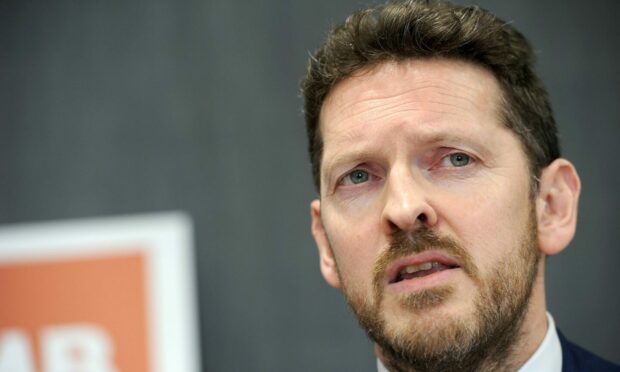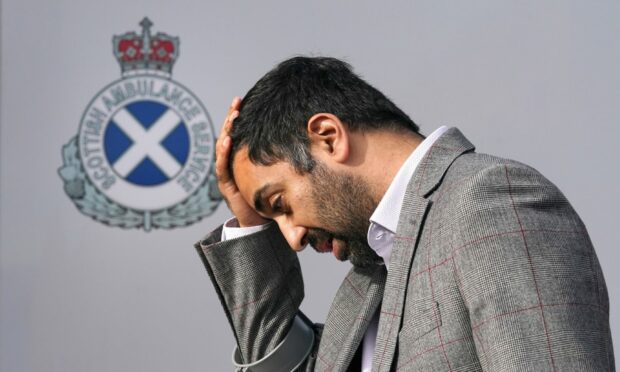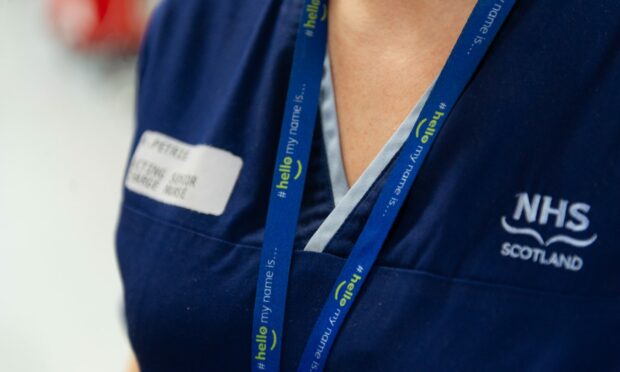A top Inverness doctor warned Scotland’s NHS is in a “dire situation” after it emerged health board executives discussed creating a “two-tier system” where some patients pay for treatment.
Dr Iain Kennedy, who chairs doctors’ union BMA Scotland, claimed the country risks “sleepwalking” into a situation where free healthcare is no longer available for all – at odds with the health service’s founding principle.
The Scottish Government insists the shock suggestion will not be allowed to happen.
But it puts more pressure on the SNP to sort out a financial blackhole.
Dr Kennedy, a GP partner at Riverside Highland Medical Group, said staff face an “impossible” job in meeting key targets and insisted major reforms are needed.
According to the BBC, the proposals were floated during a September meeting of NHS chief executives.
It is beyond doubt that in order to avoid sleepwalking into the two-tier system that threatens this fundamental principle of free healthcare, we need a proper, open conversation about the NHS.
– Dr Iain Kennedy, BMA Scotland
It’s claimed draft minutes from the talks suggested saving cash by scaling back free prescriptions and encouraging better-off patients to use private healthcare instead.
Scotland’s hospitals have endured record A&E waiting times this year, nurses are threatening to strike and staff are coping with huge backlogs in the aftermath of the Covid pandemic.
SNP health chief Humza Yousaf insisted his party was committed to the “core values” of the NHS and said he would never consider charging patients.
Nicola Sturgeon said: “The founding principles of the National Health Service are not up for discussion.”
‘The workforce is on its knees’
Dr Kennedy said it’s not feasible to just carry on and do everything the Scottish Government asks without more money.
“We have been extremely clear that our health service should remain free at the point of need and true to its founding principles,” he said.
“However, it is beyond doubt that in order to avoid sleepwalking into the two-tier system that threatens this fundamental principle of free healthcare, we need a proper, open conversation about the NHS.”
He added: “Healthcare workers cannot do any more than they are currently doing – the entire workforce is on its knees.
“NHS boards have a nigh-on impossible task in making the budgets provided deliver everything that is being asked by the Scottish government.
“This is a dire situation for our NHS, with a massive lack of resources to meet spiralling demand. Things won’t magically get better.”
Who’s to blame for financial pain?
Soaring inflation has further heightened pressure on the NHS as the Scottish Government look to balance the books while still funding healthcare.
Deputy First Minister John Swinney announced £400 million of health and social care funding cuts at the start of November to protect frontline services.
In his budget, Tory Chancellor Jeremy Hunt committed extra funds for the NHS in England despite implementing sweeping cuts.
Leading SNP figures have blamed the Conservatives for the current crisis.
Ms Sturgeon warned Mr Hunt’s economic plans would worsen austerity.
Health secretary Mr Yousaf claimed Brexit has hampered the Scottish Government’s ability to recruit healthcare workers from abroad.
But opposition parties in Holyrood say it is the SNP’s job to address the ongoing mess in Scotland and Mr Yousaf has faced demands to resign.
How does it work in other countries?
The UK’s neighbours have a range of different healthcare systems, some which are noticeably different from the NHS.
In Ireland, poorer and elderly residents gain access to a medical card which grants them free treatment.
However, many patients instead have private healthcare. GP and A&E visits can be much more costly than in Scotland.
In Germany, health insurance is mandatory. Most residents pay into a public system which then allows them to get treatment.
Some richer Germans instead opt for private healthcare.
Humza Yousaf rejects ‘two-tier’ suggestion
At a visit to a hospital in Kirkcaldy on Monday, Mr Yousaf said he has “very regular” meetings with the NHS chief executive – and said there has “not been a syllable about charging people”.
The health secretary added: “If there was even a thought about that I would immediately respond by shutting it down.
“This has not been mentioned by senior NHS leaders.
“I don’t know who raised this and it was not brought to my attention.”




Conversation